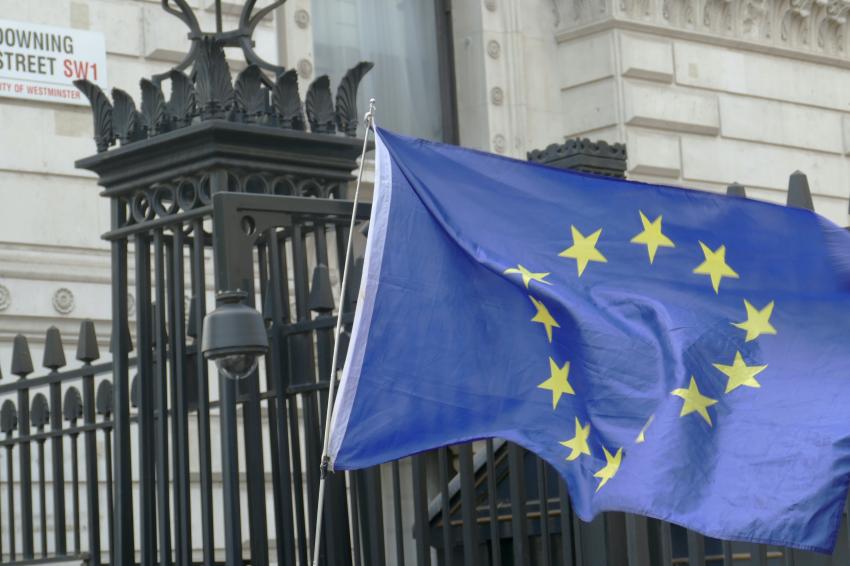EU Bodies Ratify UK Trade and Cooperation Agreement
The agreement adopts into EU law the deal that was reached on Dec. 24, 2020 after protracted negotiations and was due to expire on Apr. 30. In the Parliament (EP), it was adopted by 660 votes. Five MEPs voted against it and 32 abstained. The accompanying resolution, which sets out the EP’s evaluation of and expectations from the deal, passed by 578 votes, with 51 against and 68 abstentions.
In the resolution prepared by the UK Coordination Group, which monitored the bilateral negotiations, and the Conference of Presidents, the political body responsible for the organization of the EP’s business and legislative planning, the MEPs said they “strongly welcome” the conclusion of the agreement. This, they said, limits the negative consequences of the UK’s withdrawal from the EU, which was an “historic mistake.”
In particular, the MEPs said they view positively the zero quotas and zero tariffs trade agreement, as these provisions guarantee fair competition rules and could serve as a model for future trade agreements. At the same time, the EU’s legislative arm condemned the UK’s “recent unilateral actions” regarding Northern Ireland that it said are “in breach of the withdrawal agreement.” It urged the British government to “fully implement” the terms of the agreements and apply them based on a timetable jointly set up with the European Commission.
Most MEPs as well as Commission president Ursula von der Leyen and the Portuguese Council Presidency said they regretted the UK’s departure but argued for voting in favor of the Trade and Cooperation Agreement as it is the best option to cushion against the worst effects of Brexit and to ensure the integrity of the single market.
Trade hurdles still to deal with include REACh
Within the new trade and cooperation rules, bureaucratic hurdles still must be overcome in some business sectors. For chemicals, the UK opted out of remaining in REACh, but companies that originally registered their products there and want to continuing selling in the EU were obliged to transfer their original registration to companies registered in the EU, the EEA or Northern Ireland. The latter is part of an attempt to avoid a “hard” customs border between Northern Ireland, and the Republic of Ireland, an EU member state.
Following the Mar. 2021, deadline, safety information for more than 8,000 chemicals has now been successfully transferred, but the European Chemicals Agency (ECHA), implementing body for REACh, has advised that administrative information on the company’s role in the supply chain may also need to be revised by the new registrant. If changes are required, registrants will have up to 3 months to update the information, or up to 6, 9 or 12 months for more complex updates, according to the European Commission’s implementing regulation on dossier updates.
Products registered under REACh for which updates are necessary include previously notified substances (NONS) under the Dangerous Substances Directive. Since March, ECHA said it has been actively checking information – whether newly submitted data or that included in a previous registration. With the transfers complete, all previous UK registrations are now legally void and indicated as “revoked” in ECHA’s database and on its website. The chemicals agency said that 2,964 former UK registrations were not transferred.
The UK’s creation of its own version of REACh, which is expected to be a slow process, could result in conflicting standards, some fear. By April 30, companies doing business on the other side of the channel had to submit fundamental information to the UK Health and Safety Executive. For submission of the full data requirements, transition periods of 2 to 6 years apply, depending on the tonnage involved and the risk potential, ECHA noted.
Trying to persuade the UK from exiting REACh, companies and industry associations across Europe warned against creating time-consuming paperwork and uncertainty about compliance criteria. The UK association representing distributors, Chemical Business Association (CBA), has estimated that the cost of complying with a UK Reach could run as high as £1 billion – as much as the industry has already spent on EU REACh for a market 12% of the size.
Author: Dede Williams, Freelance Journalist








